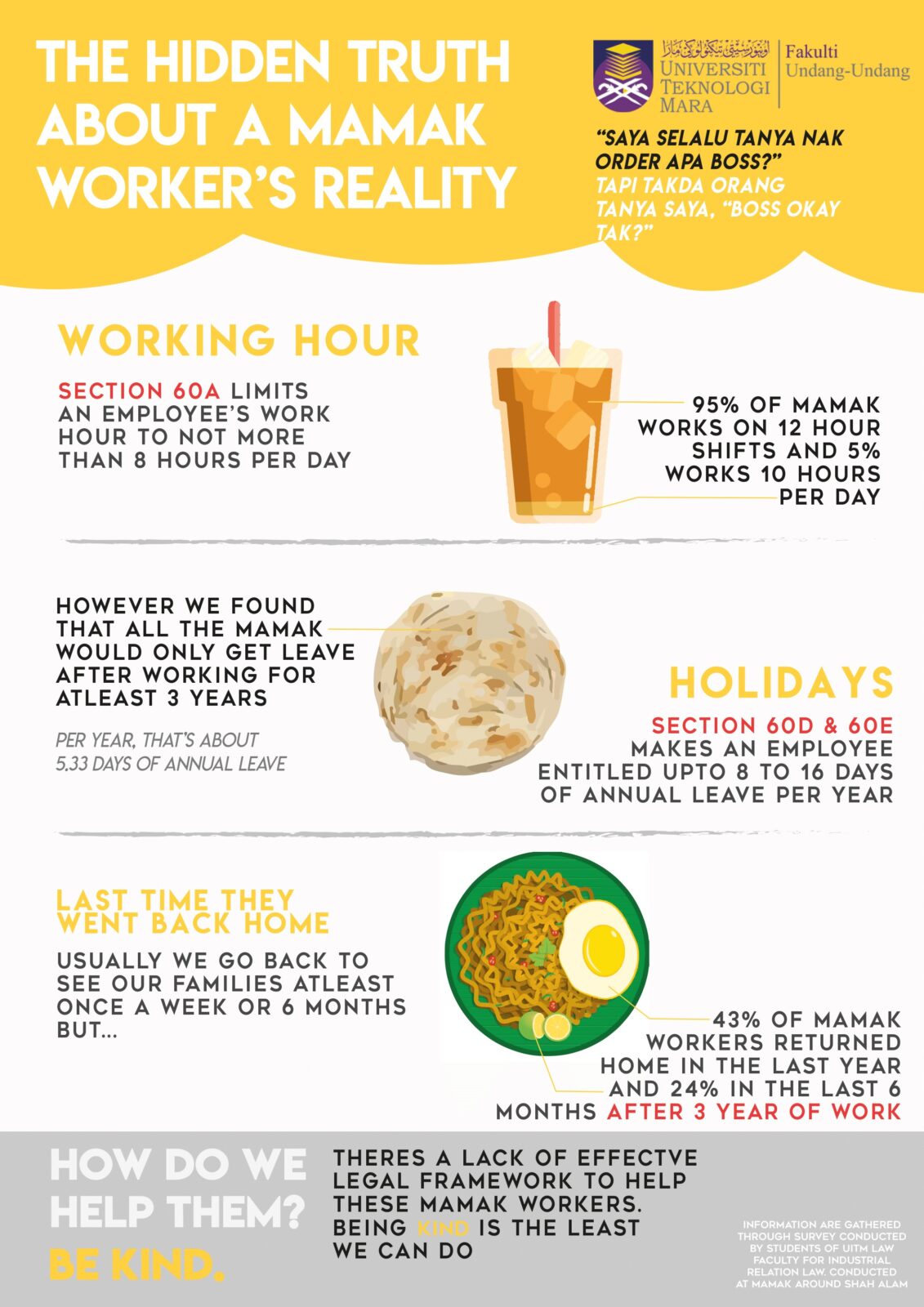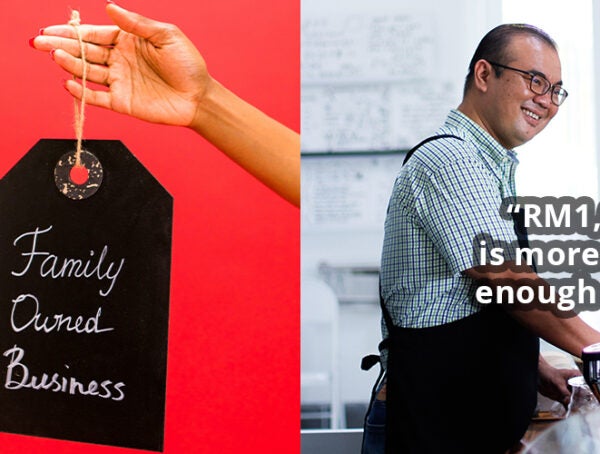Disclaimer: In Real Life is a platform for everyday people to share their experiences and voices. All articles are personal stories and do not necessarily echo In Real Life’s sentiments.
The minimum wage in Malaysia is set to increase from RM1,200 to RM1,500 by the end of 2022. In response to this news, the MEF (Malaysian Employers Federation) and FMM (Federation of Malaysian Manufacturers) have raised objections, saying that the move will “kill businesses” and that “it would have an undesirable impact on the economy”.
However, these refusals are illogical and are made in the interest of employers rather than employees. Here are the reasons why they are wrong:
1. Exploitation of workers
Profits for any business are generated by workers. Yet these profits are not shared with them, and so workers only see the fruit of their labour in their salaries.
A salary of RM1,200 is already pitifully low. In 2019, it was determined by the Department of Statistics that the Malaysian poverty wage is RM2,208. As you can see, our potential new minimum wage does not come close to it. And that study was in 2019! The cost of things has sharply risen since then.
We can see the exploitation of workers starkly with the case of mamak workers:

Although Malaysian workers aren’t treated this badly, these findings show how much Malaysian employers are happy to screw over their workers to maximise their profits.
2. Preying on xenophobic sentiment
MEF president Syed Hussain Syed Husman said that raising the minimum wage would only benefit foreign labourers, a statement that ignores poverty amongst Malaysians. The claim also sounds like it seeks to detract from the local support for raising the minimum wage by shoving foreign workers under the bus.
Malaysians can be very xenophobic, looking down on those from less developed countries such as Bangladesh, Nepal, Philippines, etc. Everyone needs someone to look down on to make themselves feel better, I suppose, but the claim hopes to inflame discrimination against foreign workers and cause Malaysians to argue against their own best interests.
Malaysia has already made the news several times in an international context for our abuse of human rights towards our migrant workers, many of whom are the backbone of the country because they do work that locals do not want to stoop down to. Malaysia’s rapid development has also been attributed to foreign labour.

Source: the guardian
Nobody should be exploited for profit – not Malaysians, but also not foreign workers either.
3. Local workers will benefit greatly
Although the hike in the minimum wage is minimal, from the perspective of a worker, that’s still RM300 extra that workers have to be paid. RM300 can make a great difference in the life of someone who lives paycheck to paycheck on the minimum wage.
Those who earn little have very few opportunities to save their money or to even indulge in recreation, as cost of living has risen so much in the past few years. Raising the minimum wage (and any other move to better the welfare of workers) ultimately leads to better work and happier workers, because their living conditions will be improved.

Malaysia’s income inequality is already a massive problem, and paying those at the bottom more will help ease the issue.
4. Raising the minimum wage will not “derail economic recovery”
A heavily discussed topic in the field of economics, many who study this say that raising the minimum wage will actually aid in economic recovery and that it is good economics! It will also aid in decreasing employee turnover and boost productivity.
The MEF president claims that small and medium businesses will be killed off by increasing the minimum wage, but that’s sheer fear mongering. Studies have found the opposite – in fact, employment increased and workers had more money to spend at businesses.
5. Improve health of workers and welfare of children
Low-income workers tend to be smokers. Besides that, they also tend to have untreated medical issues that they have little time and money to either get diagnosed or be treated. An increase in the minimum wage will allow workers to take care of their health better. Studies have found that it can be directly correlated to smoking, days off from work due to health issues, and birthweight.
On top of that, child poverty will be reduced – parents will be better equipped to provide for the needs of their children. Unfortunately, low income parents are unable to afford everything that their child may need, be it breakfast or transportation to school. If wages were to improve, less children would suffer from poverty and the health deficit it creates.
Let’s call a spade a spade: the biggest issue against raising the minimum wage is that employers cannot maximise their profits by paying their employees the smallest possible wage

Workers not only generate profit, but their salaries are one of the biggest business costs. If you can’t afford workers, maybe you can’t afford to run your own business.
People own businesses because they enjoy the idea of being their own boss – but it also requires the responsibility of being a good boss to your workers.
Some people just aren’t ready for that.
For more stories like this, read: Is Your Favourite Local Small Business Taking Advantage Of Their Workers?, Malaysian Income Inequality Is Getting Worse – What You Need To Know, and Malaysians Must Acknowledge The Importance Of Our Foreign Residents As Part Of Malaysia.
You might also like
More from Real People
‘A RM100 fee cost a company 5 years of revenue’ shares M’sian
This story is about a Malaysian who learned that bureaucracy can be defeated simply by not arguing with it.A billing …
‘I quiet-quit, upskilled, and tripled my salary,’ shares M’sian engineer
This story is about a Malaysian who learned that loyalty without leverage leads nowhere in the corporate world.After years of …
‘I did everything right, and it still wasn’t enough’ shares M’sian graduate
This story is about a Malaysian graduate navigating big dreams in a job market where a degree no longer guarantees …

















